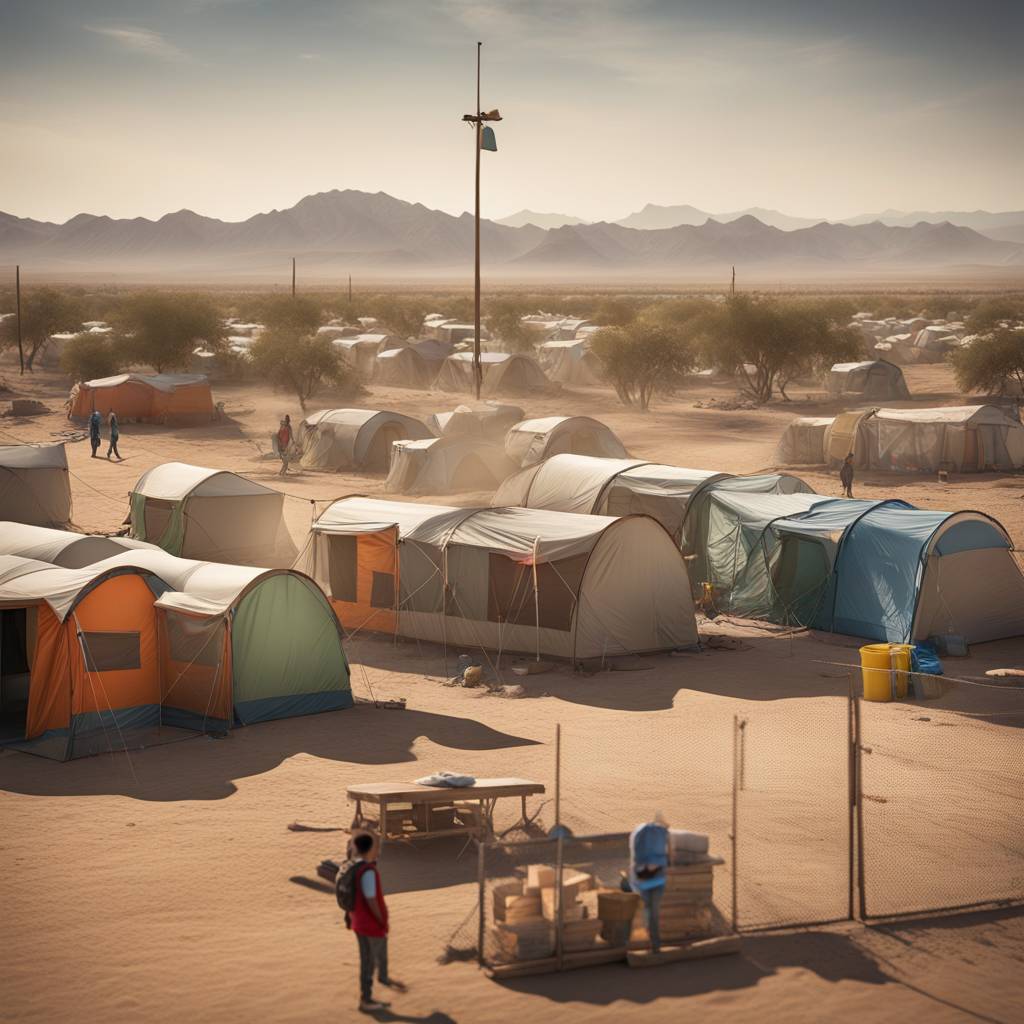In a recent court order, a federal judge in California stated that migrant children held in open-air desert camps must be processed quickly and placed in safe and sanitary facilities. The judge noted that US Customs and Border Protection has legal custody of the minors at these sites and is responsible for their health and welfare. Thousands of asylum seekers, including children from various countries, have found themselves in makeshift camps in remote areas of the California desert since last spring.
Children’s rights attorneys have argued that federal immigration officials directed migrants to these camps without providing adequate necessities such as food, water, shelter, and medical services. The Biden administration, however, claimed that the minors were not in the legal custody of CBP as they had not been arrested. Despite this, attorneys pointed to Border Patrol’s actions at the camps, such as patrolling, surveillance, and transportation of migrants, as evidence of the agency assuming authority over them.
The judge’s ruling on Wednesday stated that CBP should not hold minors in open-air sites or direct them there unless necessary for preparing them or arranging transport to a better facility. The CBP Juvenile Coordinator was ordered to provide an interim report by May 10 detailing the number of minors in these sites and how the agency has complied with the judge’s order. Attorneys will have six days to respond to the report, highlighting the ongoing concern surrounding the treatment of migrant children in federal custody.
As the situation at the open-air desert camps continues to unfold, questions remain about the treatment of migrant children and the responsibility of federal agencies in ensuring their safety and well-being. The court’s decision underscores the need for proper care and appropriate facilities for minors in federal custody, highlighting the challenges faced by asylum seekers seeking refuge in the United States.
The involvement of children’s rights attorneys in advocating for the rights of migrant children further emphasizes the importance of ensuring their protection and humane treatment while in custody. The actions taken by Border Patrol agents at the camps, such as surveillance and wristbanding, raise concerns about potential violations of the minors’ rights and the need for oversight and accountability in the handling of migrant populations.
Overall, the court order and ongoing legal proceedings shed light on the complexities and challenges of addressing the needs of migrant children in federal custody, particularly in remote and makeshift camp settings. It highlights the importance of upholding legal standards and providing appropriate care and resources to those seeking asylum, underscoring the broader issue of immigration policy and the treatment of vulnerable populations at the border.













